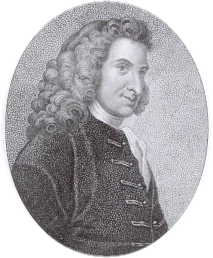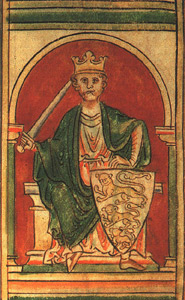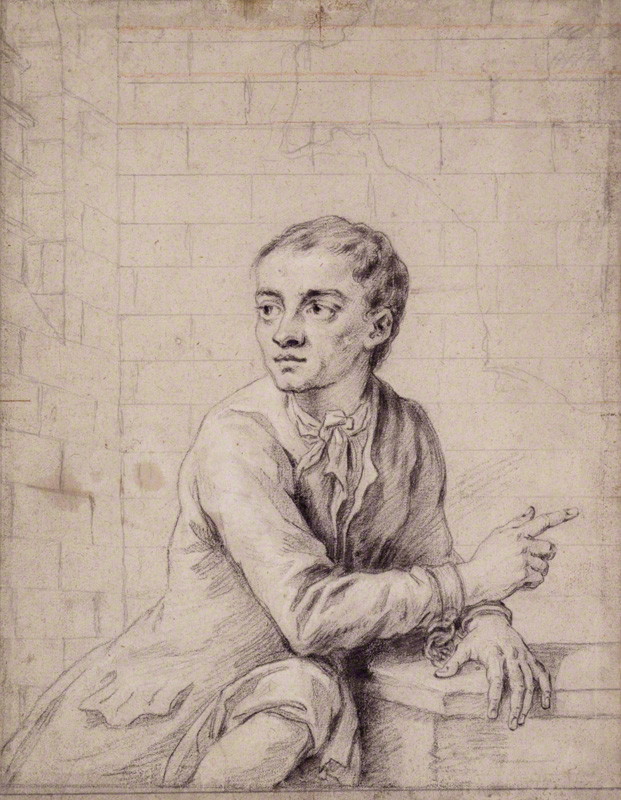|
Bow Street Runners
The Bow Street Runners were the law enforcement officers of the Bow Street Magistrates' Court in the City of Westminster. They have been called London's first professional police force. The force originally numbered six men and was founded in 1749 by magistrate Henry Fielding, who was also well known as an author. ''Bow Street Runners'' was the public's nickname for the officers although the officers did not use the term themselves and considered it derogatory. The group was disbanded in 1839 and its personnel merged with the Metropolitan Police. The Metropolitan Police Detective Agency traces their origin back to them. History The Bow Street Runners are considered the first British police force. Before the force was founded, the law enforcing system was in the hands of private citizens and single individuals with very little intervention from the state. Magistrate Henry Fielding decided to regulate and legalise their activity due to high rates of corruption and mistaken or mal ... [...More Info...] [...Related Items...] OR: [Wikipedia] [Google] [Baidu] |
Bow Street Magistrates' Court
Bow Street Magistrates' Court became one of the most famous magistrates' court in England. Over its 266-year existence it occupied various buildings on Bow Street in Central London, immediately north-east of Covent Garden. It closed in 2006 and its work moved to a set of four magistrates' courts: Westminster, Camberwell Green, Highbury Corner and the City of Westminster Magistrates' Court. The senior magistrate at Bow Street until 2000 was the Chief Metropolitan Stipendiary Magistrate. The building, which is grade II listed, is now a hotel and police museum. History The first court at Bow Street was established in 1740, when Colonel Sir Thomas de Veil, a Westminster justice, sat as a magistrate in his home at number 4. De Veil was succeeded by novelist and playwright Henry Fielding in 1747. He was appointed a magistrate for the City of Westminster in 1748, at a time when the problem of gin consumption and resultant crime was at its height. There were eight licensed premises ... [...More Info...] [...Related Items...] OR: [Wikipedia] [Google] [Baidu] |
Magistrate (England And Wales)
Magistrates are trained volunteers, selected from the local community, who deal with a wide range of criminal and civil proceedings. They are also known as Justices of the Peace. In the adult criminal court, magistrates decide on offences which carry up to twelve months in prison, or an unlimited fine. Magistrates also sit in the family court where they help resolve disputes that involve children, and in the youth court which deals with criminal matters involving young people aged 10-17. Established over 650 years ago, the magistracy is a key part of the judiciary of England and Wales, and it is a role underpinned by the principles of 'local justice' and 'justice by one's peers'. Magistrates typically sit as a bench of three, mixed in gender, age and ethnicity where possible, to bring a broad experience of life to the bench. They can sit alone to hear warrant applications or deal with uncontested matters heard under the single justice procedure. All members of the bench have ... [...More Info...] [...Related Items...] OR: [Wikipedia] [Google] [Baidu] |
Thomas Pelham-Holles, 1st Duke Of Newcastle
Thomas Pelham-Holles, 1st Duke of Newcastle upon Tyne and 1st Duke of Newcastle-under-Lyne, (21 July 169317 November 1768) was a British Whig statesman who served as the 4th and 6th Prime Minister of Great Britain, his official life extended throughout the Whig supremacy of the 18th century. He is commonly known as the Duke of Newcastle. A protégé of Sir Robert Walpole, he served under him for more than 20 years until 1742. He held power with his brother, Prime Minister Henry Pelham, until 1754. He had then served as a Secretary of State continuously for 30 years and dominated British foreign policy. After Henry's death, the Duke of Newcastle was prime minister six years in two separate periods. While his first premiership was not particularly notable, Newcastle precipitated the Seven Years' War, and his weak diplomacy cost him the premiership. After his second term, he served briefly in Lord Rockingham's ministry, before he retired from government. He was most effect ... [...More Info...] [...Related Items...] OR: [Wikipedia] [Google] [Baidu] |
Jonathan Wild
Jonathan Wild, also spelled Wilde (1682 or 1683 – 24 May 1725), was a London underworld figure notable for operating on both sides of the law, posing as a public-spirited vigilante entitled the "'' Thief-Taker General''". He simultaneously ran a significant criminal empire, and used his crimefighting role to remove rivals and launder the proceeds of his own crimes. Wild exploited a strong public demand for action during a major 18th-century crime wave in the absence of any effective police force in London. As a powerful gang-leader himself, he became a master manipulator of legal systems, collecting the rewards offered for valuables which he had stolen himself, bribing prison guards to release his colleagues, and blackmailing any who crossed him. Wild was consulted on crime by the government due to his apparently remarkable prowess in locating stolen items and those who had stolen them. Wild was responsible for the arrest and execution of Jack Sheppard, a petty thief and ... [...More Info...] [...Related Items...] OR: [Wikipedia] [Google] [Baidu] |
War Of The Spanish Succession
The War of the Spanish Succession was a European great power conflict that took place from 1701 to 1714. The death of childless Charles II of Spain in November 1700 led to a struggle for control of the Spanish Empire between his heirs, Philip V of Spain, Philip of Anjou and Charles VI, Holy Roman Emperor, Charles of Austria, and their respective supporters, among them Spanish Empire, Spain, Habsburg monarchy, Austria, Kingdom of France, France, the Dutch Republic, Savoyard state, Savoy and Kingdom of Great Britain, Great Britain. Related conflicts include the 1700–1721 Great Northern War, Rákóczi's War of Independence in Kingdom of Hungary (1526–1867), Hungary, the Camisards revolt in southern France, Queen Anne's War in North America and minor trade wars in colonial India, India and New Spain, South America. Although weakened by over a century of continuous conflict, Spain remained a global power whose territories included the Spanish Netherlands, large parts of Italy, ... [...More Info...] [...Related Items...] OR: [Wikipedia] [Google] [Baidu] |
Burglary
Burglary, also called breaking and entering and sometimes housebreaking, is the act of entering a building or other areas without permission, with the intention of committing a criminal offence. Usually that offence is theft, robbery or murder, but most jurisdictions include others within the ambit of burglary. To commit burglary is to ''burgle'', a term back-formed from the word ''burglar'', or to ''burglarize''. Etymology Sir Edward Coke (1552–1634) explains at the start of Chapter 14 in the third part of '' Institutes of the Lawes of England'' (pub. 1644), that the word ''Burglar'' ("''or the person that committeth burglary''"), is derived from the words ''burgh'' and ''laron'', meaning ''house-thieves''. A note indicates he relies on the ''Brooke's case'' for this definition. According to one textbook, the etymology originates from Anglo-Saxon or Old English, one of the Germanic languages. (Perhaps paraphrasing Sir Edward Coke:) "The word ''burglar'' comes from the two ... [...More Info...] [...Related Items...] OR: [Wikipedia] [Google] [Baidu] |
Highwayman
A highwayman was a robber who stole from travellers. This type of thief usually travelled and robbed by horse as compared to a footpad who travelled and robbed on foot; mounted highwaymen were widely considered to be socially superior to footpads. Such criminals operated until the mid or late 19th century. Highwaywomen, such as Katherine Ferrers, were said to also exist, often dressing as men, especially in fiction. The first attestation of the word ''highwayman'' is from 1617. Euphemisms such as "knights of the road" and "gentlemen of the road" were sometimes used by people interested in romanticizing (with a Robin Hood–esque slant) what was often an especially violent form of stealing. In the 19th-century American West, highwaymen were sometimes known as ''road agents''. In Australia, they were known as bushrangers. Robbing The great age of highwaymen was the period from the Restoration in 1660 to the death of Queen Anne in 1714. Some of them are known to have b ... [...More Info...] [...Related Items...] OR: [Wikipedia] [Google] [Baidu] |
Watchman (law Enforcement)
Watchmen were organised groups of men, usually authorised by a state, government, city, or society, to deter criminal activity and provide law enforcement as well as traditionally perform the services of public safety, fire watch, crime prevention, crime detection, and recovery of stolen goods. Watchmen have existed since earliest recorded times in various guises throughout the world and were generally succeeded by the emergence of formally organised professional policing. Early origins An early reference to a watch can be found in the Bible where the Prophet Ezekiel states that it was the duty of the watch to blow the horn and sound the alarm. (Ezekiel 33:1-6) The Roman Empire made use of the Praetorian Guard and the Vigiles, literally the watch. Watchmen in England The problem of the night The streets in London were dark and had a shortage of and poor quality artificial light. It had been recognised for centuries that the coming of darkness to the unlit streets of a ... [...More Info...] [...Related Items...] OR: [Wikipedia] [Google] [Baidu] |
Constable
A constable is a person holding a particular office, most commonly in criminal law enforcement. The office of constable can vary significantly in different jurisdictions. A constable is commonly the rank of an officer within the police. Other people may be granted powers of a constable without holding this title. Etymology Historically, the title comes from the Latin '' comes stabuli'' (attendant to the stables, literally ''count of the stable'') and originated from the Roman Empire; originally, the constable was the officer responsible for keeping the horses of a lord or monarch.p103, Bruce, Alistair, ''Keepers of the Kingdom'' (Cassell, 2002), Constable Encyclopædia Britannica online The title was imported to the monarchies of |
Maréchaussée
The () were corps of soldiers in the armies of France initially put in charge of military policing and justice in the Middle Ages, and later extended to civilian responsibilities. They gradually coalesced into a police force with jurisdiction over the entire population on almost the entire territory of France. They retained powers of extraordinary justice (known as ''prévôtale'') until the French Revolution. Reforms carried out in the 18th century created the first national police force. In 1791, the force was renamed the ''Gendarmerie nationale''. It is now one of the two national police forces of France, along with the ''Police nationale''. Terminology The term ''marshalcy'' is from the French , which is derived from Old French , meaning "the marshalcy." This derives from attested in 1287 meaning "royal household", and in 1465 as "the office of the marshal". One account in the history of a small town in western France reports how the terminology was undergoing a ch ... [...More Info...] [...Related Items...] OR: [Wikipedia] [Google] [Baidu] |
Waistcoat
A waistcoat ( UK and Commonwealth, or ; colloquially called a weskit), or vest ( US and Canada), is a sleeveless upper-body garment. It is usually worn over a dress shirt and necktie and below a coat as a part of most men's formal wear. It is also sported as the third piece in the traditional three-piece male suit. Any given waistcoat can be simple or ornate, or for leisure or luxury. Historically, the waistcoat can be worn either in the place of, or underneath, a larger coat, dependent upon the weather, wearer, and setting. Daytime formal wear and semi-formal wear commonly comprises a contrastingly coloured waistcoat, such as in buff or dove gray, still seen in morning dress and black lounge suit. For white tie and black tie, it is traditionally white and black, respectively. Name The term ''waistcoat'' is used in the United Kingdom and many Commonwealth countries. The term ''vest'' is used widely in the United States and Canada, and is often worn as part of ... [...More Info...] [...Related Items...] OR: [Wikipedia] [Google] [Baidu] |
Patrick Colquhoun
Patrick Colquhoun ( ; 14 March 1745 – 25 April 1820) was a Scottish merchant, statistician, magistrate, and founder of the first regular preventive police force in England, the Thames River Police. He also served as Lord Provost of Glasgow 1782 to 1784. Early life Colquhoun, a descendant of the Scottish Clan Colquhoun of Luss, was born in Dumbarton in 1745. Orphaned at the age of 16, his relatives sent him to America, setting him up in the lucrative commercial trade in Virginia. In 1766, the 21-year-old Colquhoun returned to Scotland, settling in Glasgow and going into business on his own in the linen trade. Ten years later, with the outbreak of the American Revolution, Colquhoun sided against the rebels and, along with 13 other local businessmen, funded a Glasgow regiment to contribute to the government's war effort. In 1782 he purchased an estate in the West End (now part of Kelvingrove Park; and built the mansion house, Kelvingrove House (which became the first Kelving ... [...More Info...] [...Related Items...] OR: [Wikipedia] [Google] [Baidu] |











